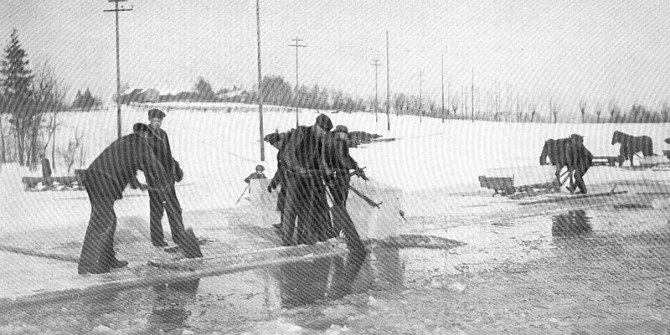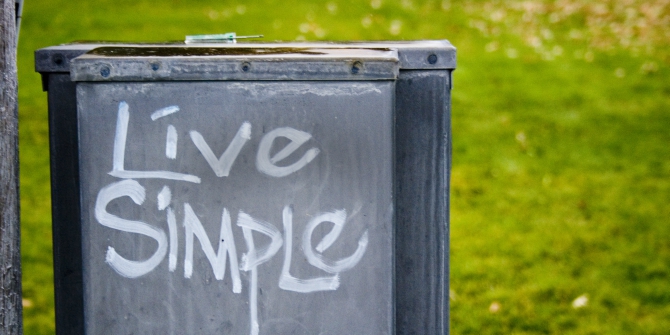War not only decreases GDP per capita but also hurts entrepreneurship in conflict-ridden countries. David Audretsch, Paul P Momtaz, Hanna Motuzenko and Silvio Vismara write that the Russia-Ukraine war has reduced entrepreneurial activity in both the formal and informal sectors of Russia and Ukraine.
There are many ways by which war reduces economic productivity, including trade disruptions, human capital losses, physical capital destruction, technological regress, political instability, and more general uncertainty. However, the new evidence that war diminishes entrepreneurial activity is striking because the benefits of entrepreneurship often materialise only after several years, implying that the post-war economic recovery will be more dampened in countries that rely to a greater extent on their entrepreneurs.
While previous studies have investigated the economic costs of conflict in terms of GDP per capita, no research assesses the aggregate economic costs of conflict in terms of (foregone) entrepreneurship. This void is surprising given that entrepreneurial activity is an essential driver of job creation and economic growth in the long run. It is also surprising because many industry groups, such as the European Business Association, have long warned of the devastating effects of violent conflict on entrepreneurs.
Some studies have investigated these effects. Quite surprisingly, they seem to suggest a positive correlation between violent conflict and entrepreneurial activity (although most are qualitative and/or poorly identified, so the reported findings must be interpreted with caution). The positive association reflects a widely held belief that war may promote economic growth. For example, Thought Co. summarises, “[o]ne of the more enduring myths in Western society is that wars are somehow good for the economy.” Similarly, the Institute for Economics & Peace argues that “[o]ne of the enduring beliefs of modern times is that war and its associated military spending has created positive economic outcomes.”
Our new study explores the impact of the Russia-Ukraine conflict that started in 2014 with the invasion of Crimea. Empirically, given the difficulty of evaluating how entrepreneurship would have evolved in Ukraine and Russia in the hypothetical absence of the war, we construct synthetic versions of Ukraine and Russia. Based on simulations that look at various predictors of entrepreneurship in unaffected countries, we find clear evidence that Russia and Ukraine lost entrepreneurial activity, as measured by self-employment (a proxy of the informal sectors) and registered Small and Medium-sized Enterprises (SMEs) (a proxy for the formal sector).
In Ukraine, the percentage of the self-employed dropped sharply by 19.5 per cent in the first conflict year, leading to the unemployment of 675 thousand formerly self-employed Ukrainians. The effect partially subsides over time, but the drop in foregone entrepreneurship still stands at 8 per cent in the fifth conflict year. The difference between actual small and medium enterprises and those in the synthetic version peaks in 2016, with a gap of 71 thousand SMEs, corresponding to a relative loss of 14 per cent. The number of SMEs recovers back to the synthetic trajectory five years into the war. Although the synthetic control method does not allow testing of the statistical significance of these economic estimates, we conduct in-space placebo tests that lead us to conclude that the probability of observing a drop in Ukrainian entrepreneurship of a similar magnitude by chance is less than 5 per cent. Therefore, the drop in Ukrainian entrepreneurship can likely be attributed to the war.
In Russia, the effect is persistent and even increases over time, with the number of SMEs dropping by 42.2 per cent, accounting for a loss of 1.4 million SMEs. The disappearance of Russian SMEs results from fewer new business creations and more existing-business closures.
We also note that the trends in entrepreneurial activity are plausibly affected by the sanctions the European Union imposed on Russia in 2016. In Russia, entrepreneurial activity declined further after 2016. In contrast, Ukraine seems to recover from the initial shock starting in 2016, and entrepreneurial activity started climbing (almost) back to its pre-war level until 2019. The European sanctions against Russia seem to be effective, with dramatic effects on the Russian economy for years to come.
Our study contributes to the literature on the economic costs of war by challenging the scholarly consensus that conflict spurs entrepreneurship. It also offers an empirical basis for policy debates around the Russia-Ukraine conflict. More generally, the study helps reconcile heterogeneous findings in the growing literature that assesses the economic costs of conflicts in terms of GDP by expanding the set of examined outcomes from GDP per capita to lost entrepreneurship. Given that the contributions of entrepreneurship to GDP are heterogeneous across countries – entrepreneurship’s value added is 20 per cent in Russia and 53 per cent in Ukraine – the study’s results provide an explanation for why war impacts countries’ GDPs so differently. Further, given that nascent entrepreneurship’s value-added materialises with a lag between starting up and being profitable, the study also helps explain why GDP recovers with delays after conflict.
Moreover, there are so many violent conflicts in the world. The Armed Conflict Location & Event Data Project (ACLED) has reported more than 8,000 battles, more than 7,000 instances of violence against civilians, and more than 4,500 riots only in the first quarter of 2023, suggesting that many entrepreneurs, especially in developing countries, experience violent conflict as the norm. Therefore, it seems that the incorporation of war into entrepreneurship theory – and entrepreneurial choice, in particular – is long overdue. War impacts the environmental factors of entrepreneurial choice – that is, freedom, constraints, uncertainty and learning – in ways that lead existing entrepreneurs to abandon their projects and deter latent entrepreneurs from entrepreneurial entry in the first place.
The study’s conclusions that Ukraine is recovering while Russia is further eroding its entrepreneurial base have significant economic implications. Putin’s war is essentially eroding Russia’s economic substance of the future.
♣♣♣
Notes:
- This blog post is based on The Economic Costs of the Russia-Ukraine War: A Synthetic Control Study of (Lost) Entrepreneurship, mimeo.
- The post represents the views of its author(s), not the position of LSE Business Review or the London School of Economics.
- Featured image by Julia Rekamie on Unsplash
- When you leave a comment, you’re agreeing to our Comment Policy.






Thank you – an insightful study. I appreciate how it addresses empirically damaging assumptions that conflict is beneficial to entrepreneurship. In my field, social entrepreneurship, there is a similar assumption: that highly constrained environments – those that are most poor, most unequal – are beneficial to social enterprise. Which is not the case.